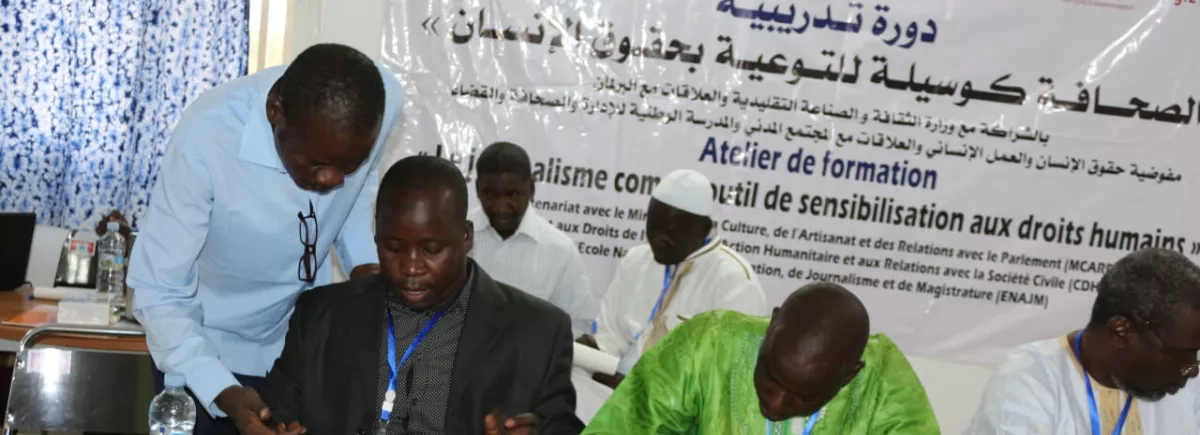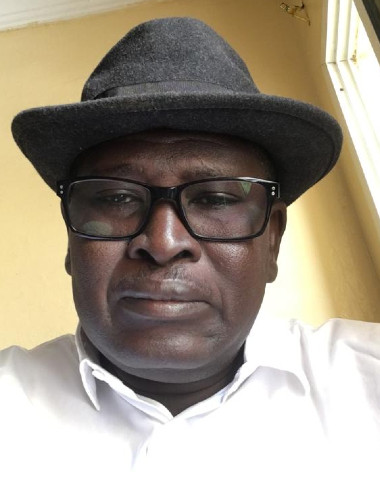
Seybane Sidi Diagana : “The Issue of Human Rights remains a Sensitive One and One that Requires a Certain Distance”
Related project
RightsInfoIn late 2019 and early 2020, Seybane Sidi Diagana, who has been a correspondent for the Mauritanian newspaper Le Calame for around 20 years, completed training on how journalists should cover issues associated with human rights. Here, he shares his experience.
"Originally a physics and chemistry teacher, but with a passion for culture and writing, Habib Ould Mahmoud, journalist and founder of the newspaper Le Calame based in Nouakchott, encouraged me to become a correspondent for his paper in 2000.
Despite being classed as a correspondent, I had never received any technical journalism training. When I saw that there was training being offered by CFI in Kaédi, where I live, I seized the opportunity. First of all, I was able to familiarise myself with human rights issues, which remain sensitive and are still emotionally loaded issues, the coverage of which requires a certain distance.
As for me, I did not participate in a course but in training which, like any other training, is recognised by means of an assessment. It is this spirit that guided me, a spirit of learning, together with the desire to master concepts in order to then use them in my work."
Write differently
"For my article, I decided to cover women's access to land ownership, particularly in the Gorgol region."

"When choosing the subject to cover, the issue of human rights had to be clear, and I am particularly interested in women's rights. I wanted to take on that challenge. Once I had made my writing plan, I submitted it to my trainer, Khalilou Diagana, whom I would like to thank, incidentally, along with all of our trainers."
"In my research, I followed the documentation techniques that we were taught meticulously, in order to gather as much information as possible on this subject, as we do not start from scratch. I searched official state websites to find the land code and other similar legal texts. In my production work, my concern was the coherence of the text and how to bring it to life to it through testimonies. In short, my aim was to write differently, so as to better capitalise on the different styles I have been taught."
Seybane Sidi Diagana won the InfosDroits 2020 First Prize in the Category of “Written press and online press", for his publication Accès des femmes à la propriété foncière (Women's Access to Land Ownership).
This training was carried out as part of the support programme “Promotion des Droits Humains et Dialogue sur les Droits Humains (PDDH)" (Promoting Human Rights and Human Rights Dialogue) implemented by Gesellschaft für Internationale Zusammenarbeit (GIZ) in Mauritanie.


